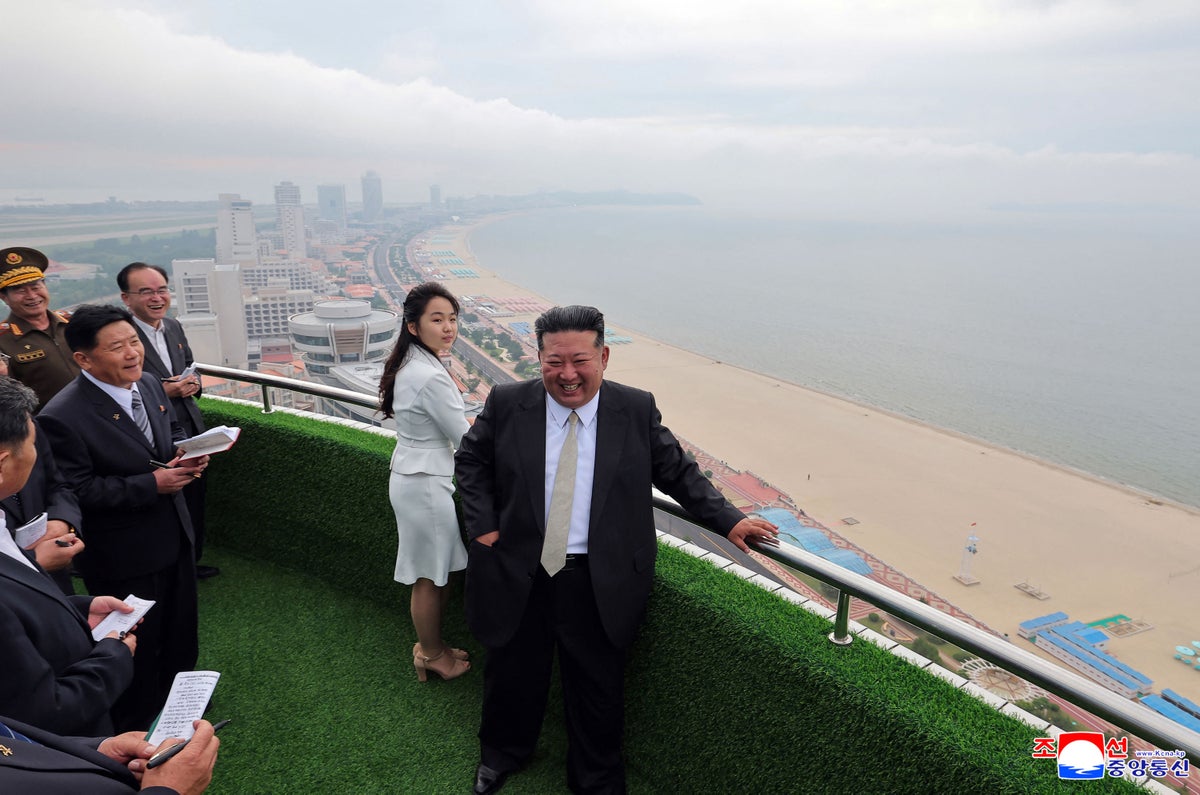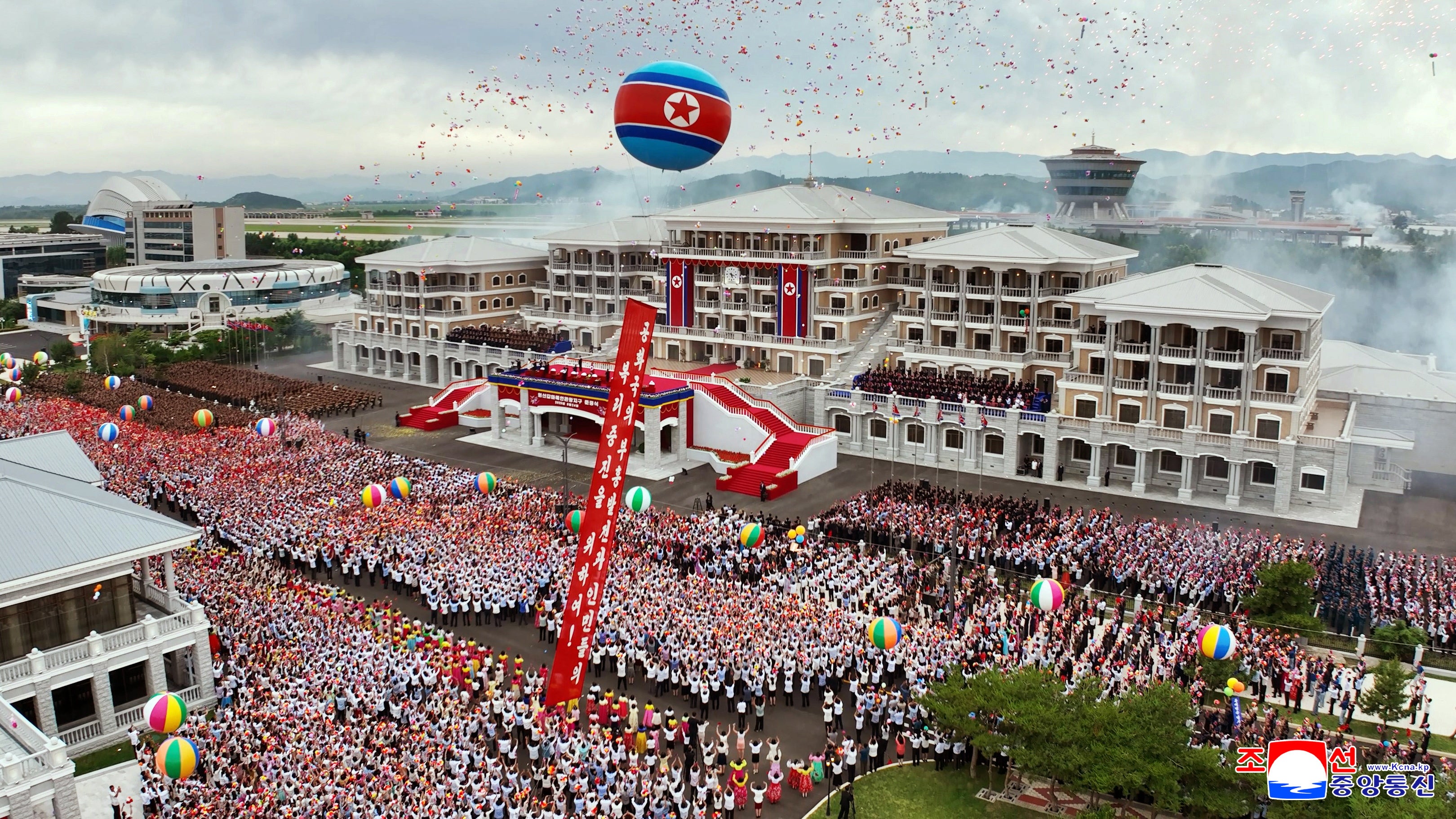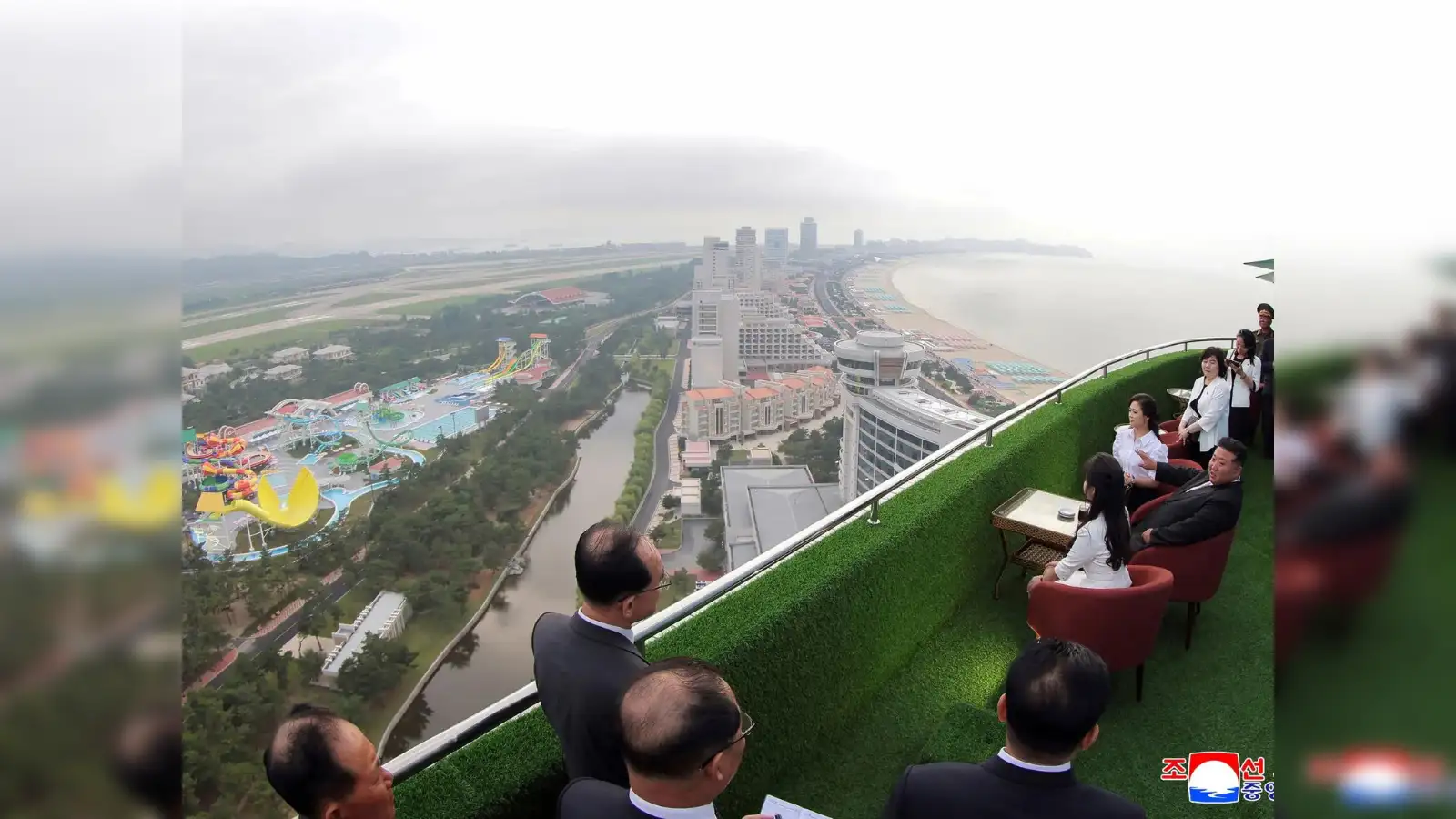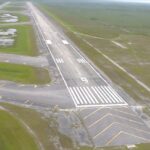Introduction: A Resort Amid Sanctions
North Korea has officially unveiled the Wonsan Kalma beach resort, a coastal tourist zone Kim Jong Un hopes will attract visitors and boost the nation’s economy. Scheduled to open to domestic tourists on 1 July 2025, this resort is the regime’s latest gamble to revamp its image and stimulate economic activity through tourism.

Positioned on the east coast, the resort spans 4km and reportedly includes hotels, restaurants, malls, and a water park. Although access for foreign tourists remains uncertain, many believe the move is designed to showcase modernity while forging deeper ties with friendly nations like Russia.
Kim Jong Un’s Vision for Tourism
The North Korean beach resort has been in the works since 2013 and was originally slated to open in 2019. Construction delays and the COVID-19 pandemic stalled progress. Now complete, the project reflects Kim’s effort to diversify North Korea’s image and economy amid crippling international sanctions on its nuclear weapons program.
Kim, who spent part of his childhood in Wonsan, is attempting to transform the once-military site into a domestic getaway. According to state media KCNA, the facility can host up to 20,000 guests at a time—though this figure is unverifiable by independent sources.
Will Foreign Tourists Come?
Experts remain skeptical about the appeal of the Wonsan Kalma resort to Western visitors. Rowan Beard of Young Pioneer Tours told the BBC, “This is unlikely to be a major draw for most Western tourists.” Popular sites like Pyongyang and the Demilitarized Zone (DMZ) are expected to remain more attractive when broader tourism resumes.

However, Elliott Davies from Uri Tours believes North Korea has “niche appeal,” especially for adventurers interested in unique cultural environments. “It’s intriguing to experience something as familiar as a beach resort shaped within the context of a closed regime,” he said.
Domestic Use and Russian Focus
For now, the resort is only open to North Koreans. It’s likely that Russian tourists—who currently enjoy privileged access—will be among the first foreigners to visit. Recently, a direct passenger train between Pyongyang and Moscow reopened after a five-year COVID-induced pause, reinforcing the growing Pyongyang-Moscow alliance.
North Korea has reportedly sent troops to aid Russia in its war against Ukraine, further solidifying the two countries’ political and economic partnership.
Symbolism and Spectacle
The resort’s launch was marked by a lavish ceremony attended by Kim Jong Un, his daughter Kim Ju Ae, and wife Ri Sol Ju—her first public appearance since New Year’s Day. State media called the event a “great, auspicious event of the whole country” and hailed it as the beginning of a new era in tourism.

As construction cranes give way to beach umbrellas, the symbolism is clear: Kim wants to showcase strength through leisure, not just military might.
Conclusion: Prestige Project or Practical Gamble?
North Korea’s beach resort is as much a PR campaign as it is a potential revenue stream. Whether it succeeds in luring tourists—and foreign currency—depends on broader geopolitics and the regime’s willingness to truly open its doors. For now, the world watches as Kim’s “new era” in tourism begins with an audience mostly at home.









